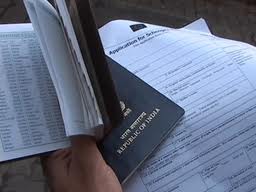
Mangalore, September 29: The Ministry for External Affairs (MEA) has increased the cost of passport and related services, with effect from October 1.
The move will increase the cost of obtaining a regular passport by Rs 500 to Rs 1,500. A release by the MEA stated that costs related to expenditure, procurement of equipment, reimbursement to police authorities, payment to India Posts, printing of passport booklets, personalisation costs, IT?expenses and contractual payment to service providers had all increased in the last ten years, necessitating an increase in the fee. The last revision of fees was in 2002, when the passport fee was increased to Rs 1,000 from Rs 300 for a normal application.
Accordingly, the rates from October 1 will be Rs 1,500 for normal applications, Rs 3,500 for tatkal applications and Rs 1,000 for minor applications. The fee for police clearance certificate has been increased to Rs 500 from Rs 300.
Though the new fee will come into effect from the next working day (Monday, October 1), the website: www.passportindia.gov.in has not revised the rates for the passport in its fee calculator link. Applicants no longer have the option of walking to the Passport Office to apply, but have to apply and take appointments through the website.
The ministry in the last few years has changed the way passport services have been delivered. Under the Passport Seva Project, the?ministry has set up 77 Passport Seva Kendras, to process passport applications. In the last few months, the ministry has started to make services more friendly after complaints from people about inability to get appointments and lack of proper guidance at the Kendras.





Comments
Add new comment